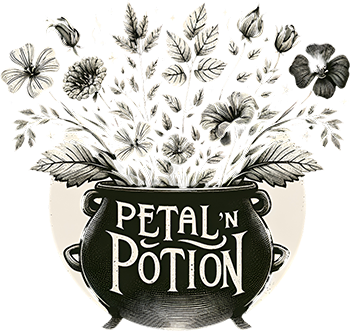H i b i s c u s
Hibiscus (Hibiscus sabdariffa) is a flowering plant native to tropical and subtropical regions around the world.
The flowers are commonly used to make teas and extracts, known for their vibrant color and tart flavor, as well as numerous health benefits.
Benefits
- Lowers Blood Pressure: Known to help reduce high blood pressure.
- Rich in Antioxidants: Provides antioxidants that protect cells from oxidative stress and damage.
- Supports Heart Health: Helps lower cholesterol levels and supports overall cardiovascular health.
- Aids in Weight Management: May help support weight loss by boosting metabolism and reducing fat absorption.
- Improves Digestive Health: Promotes healthy digestion and alleviates symptoms such as bloating and indigestion.
- Anti-Inflammatory: Reduces inflammation, benefiting conditions like arthritis and other inflammatory diseases.
- Immune Support: Enhances immune function and helps the body fight off infections.
- Liver Health: Supports liver health and aids in detoxification processes.
- Antimicrobial Properties: Exhibits antibacterial, antifungal, and antiviral effects.
- Skin Health: Benefits skin conditions due to its antioxidant and anti-inflammatory properties.
Active Compounds
- Anthocyanins: The primary active compounds responsible for hibiscus’s antioxidant and anti-inflammatory properties.
- Organic Acids (including Citric Acid and Malic Acid): Contribute to the plant’s tart flavor and therapeutic effects.
- Polysaccharides: Offer additional health benefits, including immune support and digestive health.
- Flavonoids: Provide antioxidant protection and support overall health.
- Quercetin: Known for its anti-inflammatory, antioxidant, and antimicrobial effects.
Who Should Avoid This
- Individuals with Low Blood Pressure: Use caution due to its blood pressure-lowering effects.
- Pregnant and Nursing Women: Consult a healthcare provider before use, especially in large amounts.
- Individuals with Hormone-Sensitive Conditions: Use caution and consult a healthcare provider.
- Individuals on Medication: Particularly those taking antihypertensives or diabetes medications should consult a healthcare provider to avoid interactions.
- Children: Consult a healthcare provider before giving hibiscus in medicinal doses to young children.
Warnings
While hibiscus offers numerous health benefits, some precautions and potential side effects should be considered:
- Blood Pressure: May lower blood pressure significantly; use caution if you are taking antihypertensive medications.
- Pregnancy and Breastfeeding: Consult a healthcare provider before use, as it may not be safe in high doses.
- Gastrointestinal Issues: High doses may cause stomach upset or diarrhea in some individuals.
- Hormonal Effects: May affect estrogen levels; consult a healthcare provider if you have hormone-sensitive conditions.
- Interactions with Medications: May interact with certain medications, including antihypertensives and diabetes medications.
Usage Guidelines
Hibiscus can be used both short-term and long-term, depending on the condition being treated. For acute issues such as reducing blood pressure or improving digestion, it is typically used until symptoms improve. For ongoing benefits such as cardiovascular health, immune support, or general wellness, longer-term use may be appropriate but always under the guidance of a healthcare professional. Always consult with a healthcare provider to determine the correct dosage and duration for your specific needs.
